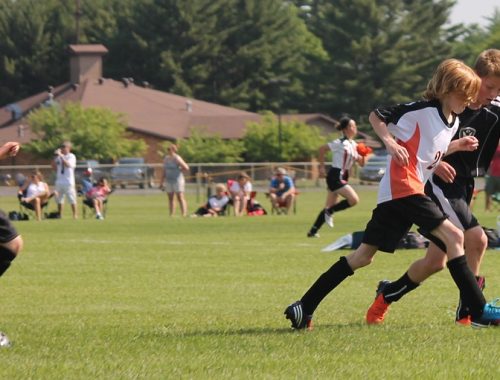
8 Tips to Prevent Bedwetting in Kids
What mothers and fathers refer to as bedwetting, is known as nocturnal enuresis and is considered a real disorder. It is a condition that causes unconsciousness and loss of urination control during sleep. It is a widespread disorder that can be completely solved with the family’s cooperation, where parents should not be shy to communicate with doctors and children.
What is Nocturnal Enuresis?
Nocturnal enuresis is the involuntary discharge of urine during sleep at an age when urination can be controlled. A child who urinates in bed twice a week for three consecutive months after the age of 5 completely fits this definition.
If left untreated, nocturnal enuresis can lead to low self-esteem, social isolation (the child’s avoidance of all activities that involve other people outside the home), and a stressful situation for the entire family.
Tips to Help Prevent Nocturnal Enuresis
1) Keep Calm and Reassure Your Child
Talking openly about the situation the child is experiencing can help the child deal with the problem more calmly. By sharing his experience and letting him know that many other children have bedwetting, he will gain self-confidence and come out of it.
2) Avoid an Overload of Fluid Before Bedtime
Avoiding overhydration two hours before bedtime and accustoming the child to proper hydration during the day is an effective way to control the problem at night. Very often, children avoid drinking during school hours and supplement during the late afternoon and evening. Properly allocating fluid intake during the day prevents thirst in the evening and drinking less before sleeping.
3) Wake The Child To Pee At Night
Once during the night, wake the child up to pee. However, only do this if it is beneficial. This practice, once strongly recommended, is no longer agreed upon. For some children it works, but for other family members it severely degrades the quality of their sleep and becomes a new source of stress. For example, if the child urinates only once during the night and at about the same time each time, it may be worth trying. If there is no sign of improvement, other treatment options should be chosen.

4) Use Diapers
Diapers should only be used if the child agrees otherwise, you can simply use a cloth to protect the child’s sleeping area. Children are more likely to accept an accident and the resulting change of sheets than to wear a diaper, which can be embarrassing. Remember that the problem can be solved only when the child is actively involved. Forcing the child to wear a diaper may increase the child’s discomfort and emotional stress. On the other hand, involving the child in changing the laundry may help them cope better with the event.
5) Do Not Blame or Make Fun of the Child
Embarrassing the child in public can increase psychological stress and worsen the situation. On the other hand, reassuring and encouraging the child can be an excellent strategy to get the child involved in the treatment. Explaining the cause of the bedwetting can help the child avoid feeling guilty or different from others.
6) Empty the Bladder Well Before Going To Bed
Encourage this as children are often in a hurry and do not want to go to the bathroom or have an incomplete toilet. Incorporate the habit of emptying the bladder in bedtime routines.
7) Encourage Them To Develop Proper Urination Habits During the Day
Make them aware of the sensation of a full bladder and when they have to pee. However, if you make them pee too frequently, there is a risk of bladder dysmotility and urinary tract infection.

8) Praise the Child’s Success
Praising on dry nights has positive reinforcement, and children who gain confidence are more likely to succeed.
Let us know if these few tips have helped in the comments below!
You May Also Like

Which Extracurricular Activities Are Right for Your Child?
2021-12-12
Foundational Bible Passages to Read With Your Kid (Part 2)
2022-07-21


One Comment
Pingback: